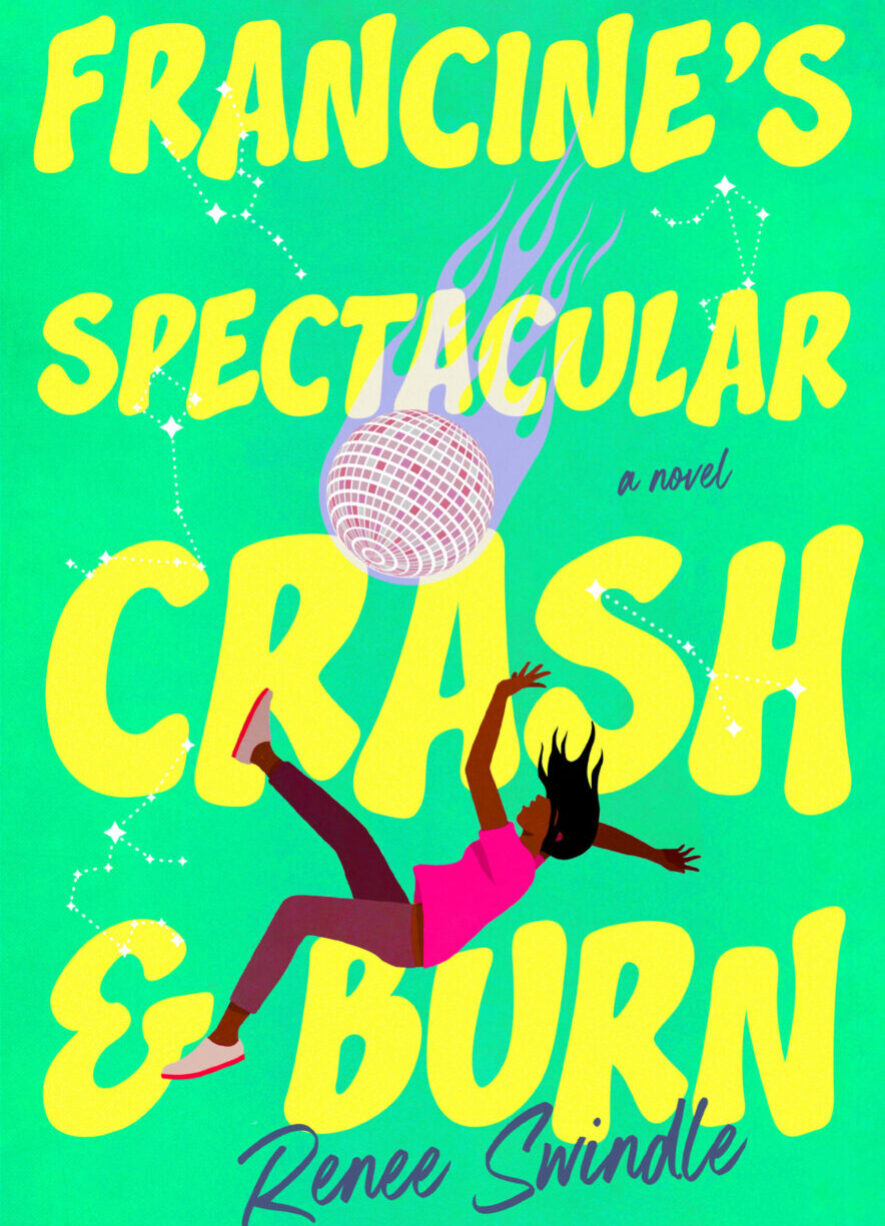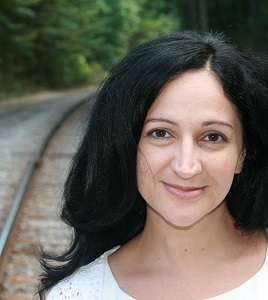I’m excited to interview Therese Walsh. Therese’s second novel THE MOON SISTERS was named one of the top novels of 2014 by Library Journal and was a best-selling Nook book and Kindle bestseller. The Moon Sisters also received starred reviews from Library Journal and Booklist.
Therese is also the co-founder of WRITER UNBOXED, a site that’s visited daily by thousands of writers interested in the craft and business of fiction.
Therese gives a great interview.
Leave a quick comment and you can WIN a signed copy of her critically acclaimed novel, The Moon Sisters.
R: The Moon Sisters has been called “magical,” “luminous,” and “atmospheric.” I like to think of it as a poetic novel that also has a terrific plot. Every time I opened the book I was absorbed in the almost dreamlike world and also caught up in the story. How did the novel come to you? Did you find anything difficult about keeping the story so compelling?
TW: Thank you for having me as a guest, Renee, and for your kind words.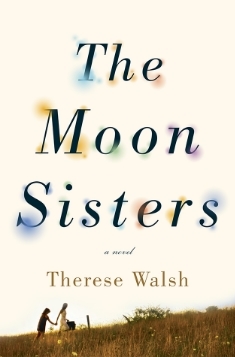
In terms of how the story came to me, it was like having some random puzzle pieces in a junk drawer, then realizing one day that they—surprise!—connected perfectly. My puzzle pieces were (1) an article on synesthesia, (2) an abandoned story involving will-o’-the-wisp lights, and (3) some unresolved issues regarding my father’s death—and my sisters’ and my processing of his death. Once I had that revelation, I could see the entire story: Girl with synesthesia travels to the setting of her dead mother’s unfinished novel—the Cranberry Glades, home to will-o’-the-wisp lights—and along the way works through unresolved grief issues with her (very different) sister.
For me, compelling story means compelling characters. I worried sometimes that readers might not want to take a journey with these sisters—Olivia and Jazz Moon—who at times were argumentative and depressed. But ultimately this is a story about life, and the way we process its purpose and keep going even when things seem bleak. For me that’s compelling, because that’s what we face as mortal beings. (Wow, sorry for the way deep answer there! I can almost hear an inspirational soundtrack, haha! But, really, these thoughts are on my mind all of the time. I sometimes feel I’m having a never-ending existential crisis.)
R: I love your honesty, Therese! And there’s no soundtrack playing. J So, Olivia, the younger of the two Moon sisters, has synesthesia, a condition that causes her to associate certain words with tastes, sounds with images and sights with smells. Olivia’s condition made for lovely descriptions and I enjoyed seeing the world through her eyes. Can you tell us more about your discovery of this disorder and how you think it shapes Olivia as a character?
TW: I learned about synesthesia though an article a friend sent to me. I was working on a different story at the time—the book that would become my debut—but I was definitely intrigued by synesthesia, and so the article went right into my story idea folder.
Olivia is by far the most original character I’ve ever imagined. What might a word taste or smell like? How might a person’s voice look? Because of Olivia, I was able to explore all of these ideas. It was relevant work, too, as The Moon Sisters is so much about different perspectives and their validity.
One of the most valuable steps I took in terms of shaping Olivia’s character was to join a synesthesia Listserv. Hearing descriptions of synesthesia from synesthetes themselves made me realize I needed to push beyond the expected. “Yellow” doesn’t have to taste like a banana, right? A few synesthetes used more abstract concepts to describe their experiences (e.g. his voice looked like liberty), and I latched onto that. I was able to use Olivia’s synesthesia not only to create what I hope are dreamlike perceptions but to reveal something about her mindset by wrapping many of them into abstract concepts (e.g. a boy who tastes like tomorrow).
R: Love that. I found myself comparing your writing to Flannery O’Connor’s at times, especially after Olivia meets Hobbs and later Red Grass. Who are your literary influences? Did you find one character in the novel more difficult to write than another?
TW: Thank you! You know, I’m occasionally asked about literary influences and I always feel that I fall short with my answer. I do have a clear philosophical influence, though, and he’s definitely present in The Moon Sisters: Albert Camus. After taking a class on Existentialism in college, I became a fan of Camus and his beliefs—especially how, even in the most challenging times, we have to try to carry on with hope. Hope is the pilot light.
In terms of difficult characters, both sisters gave me gray hair, but Jazz was my special project. When I first conceptualized this story the working title was “The Foolish Fire of Olivia Moon” and Olivia was the clear protagonist. Yet when I began writing the first chapter, Jazz more or less claimed it, and she was seriously annoyed that I didn’t realize her POV was just as relevant as Olivia’s; she was royally sick of everyone forgetting about her. It took a while for me to figure her out—she was so angry at first—but ultimately it was well worth the effort.
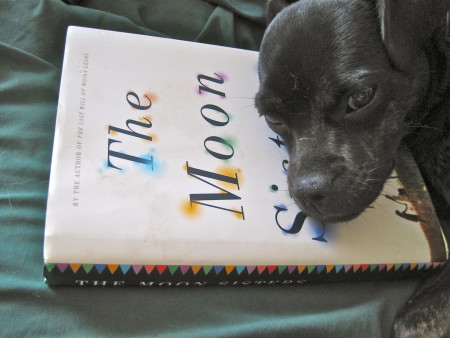
R: You depict such a strong sense of place in The Moon Sisters. You made me want to visit West Virginia. Are you from there? What role does setting play in your novels?
TW: I’m an upstate New York girl, but I did visit West Virginia before writing this story. Place is important to my writing. I think it’s sometimes a neglected element, but I think it’s a significant one if you stop to consider how important place is to all of us, in reality. Where we’re from, where we set up home, where we want to be, plays an important role in determining our fate, including our ability to dream.
R: You’re a wife, mother, and cofounder of the popular site, Writer Unboxed, how in the world do you find time to write?
TW: My dirty secret is that I don’t write as much as I would like to write. I’m continually trying to find ways to streamline my responsibility list so that I have more time with my own thoughts, in a quiet-ish place.
R: A young writer wants your advice. What three things do you tell her?
TW:
1. “Perseverance” needs to become your new favorite word. It can take a long (damn) time to write a book. It can take a long (damn) time to revise a book, and then edit it. It can take a long (damn) time to find the right agent, if you want a traditional publishing deal. And it can take a long (damn) time to find an editor / publisher. You have to know that going in, and be prepared for the long haul.
2. Be willing to hear criticism of your work, and know going in that writing can be a humbling profession. Consider that there are better ways to write (a character, a scene, a story) than the way you’ve chosen. Do the hard slog that is revision when you know in your gut that it’s the right thing for the story. Story first, always. Pride last. (Pride? What pride?)
3. Take care with social media, especially if you find yourself losing hours every day to things like Twitter, Facebook, and your blog. Preserve your writing time.
R: You’re about to have the ultimate dinner party. What artists and/or writers, living or dead, would you invite?
TW: Albert Camus. John Stewart. Amanda Palmer. Mozart. I will make sweet potato soup with caramelized onions and rum cake and too-strong margaritas.
-
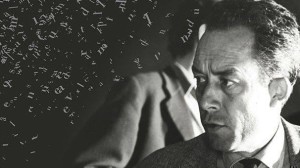
Monsieur Camus.

Amanda Palmer in action.
R:Will you describe your perfect Sunday?
TW: Hammock. Book. Sunshine. Quiet.
R: What book or books would we be surprised to see on your bookshelf?
TW: Hopping Freight Trains in America by Duffy Littlejohn.
R: Care to tell us what you’re working on now?
TW: Something completely different—moodier, more suspenseful than anything I’ve written before. I don’t want to say too much about it yet because I’m superstitious that way, but my plan is that this next book be a fantastical exploration of the power of the mind. Fingers crossed.
Thanks, Therese!
Don’t forget to leave a quick comment to enter the giveaway!
UPDATE: The comments are coming in so fast, it’s hard to keep up. Yay! I’ll announce the winner on Tuesday. Thank you so much, everyone. Keep the comments coming. Winner selected by random draw. xo
